What time does Eurovision start and how to watch it: Your questions answered
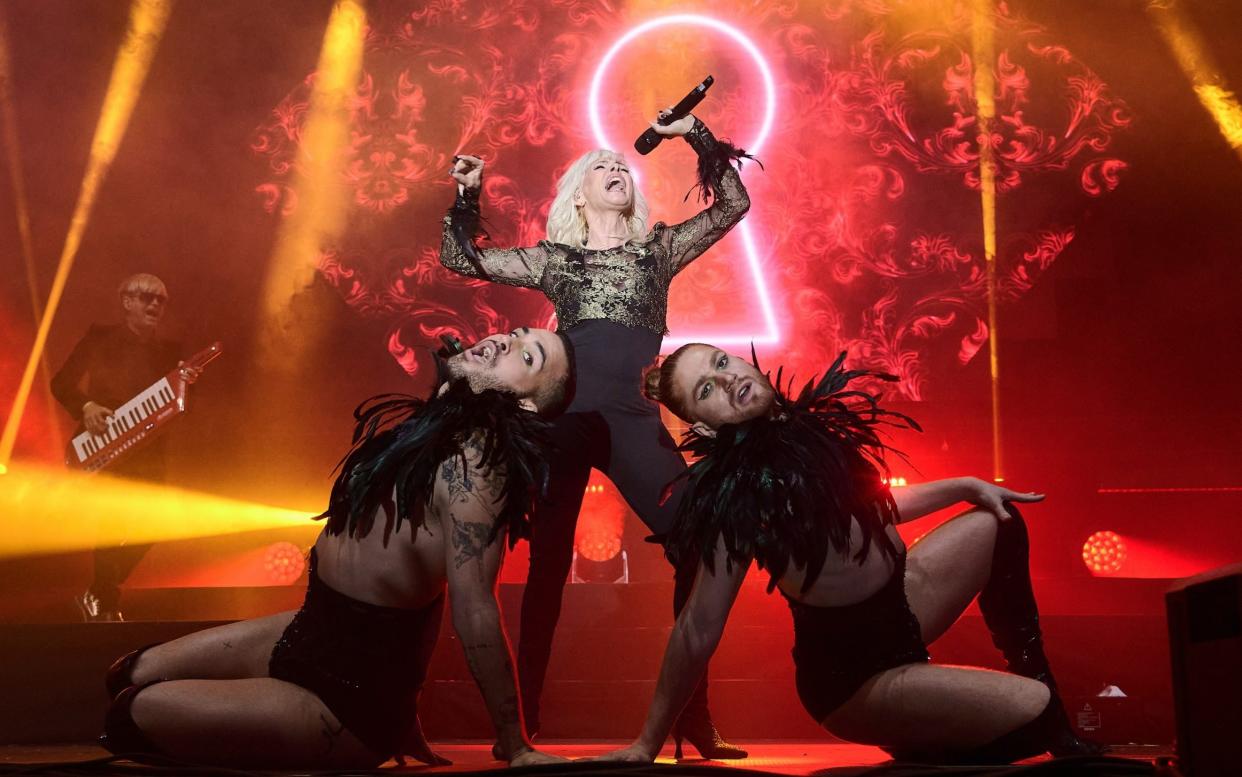
The 68th edition of the Eurovision Song Contest, the biggest and longest-running music competition in the world, is underway – and it promises to be as brilliantly bonkers, and as politically fraught, as ever. The Brits will watch with caution after a bruising result for UK entry Mae Muller last year.
Can Olly Alexander restore our national pride? Will there further booing of Israel? And when can you watch the final? Here are all your burning 2024 Eurovision questions answered.
Where is Eurovision 2024?
This year’s Eurovision will take place in Malm?, Sweden at the Malm? Arena.
The stadium is Sweden’s second-largest indoor arena and has a capacity of 15,500, having previously held the contest back in 2013. The wider host city of Malm? will also be running side events across the area in conjunction with the live shows.
Sweden was given the honour of hosting the competition after Loreen triumphed in Liverpool with her song Tattoo last year.
Hollywood actress Malin ?kerman joined comedian and Eurovision regular Petra Mede to host the semi-finals from Malm? Arena. They’ll also be on hand to compere the finals.
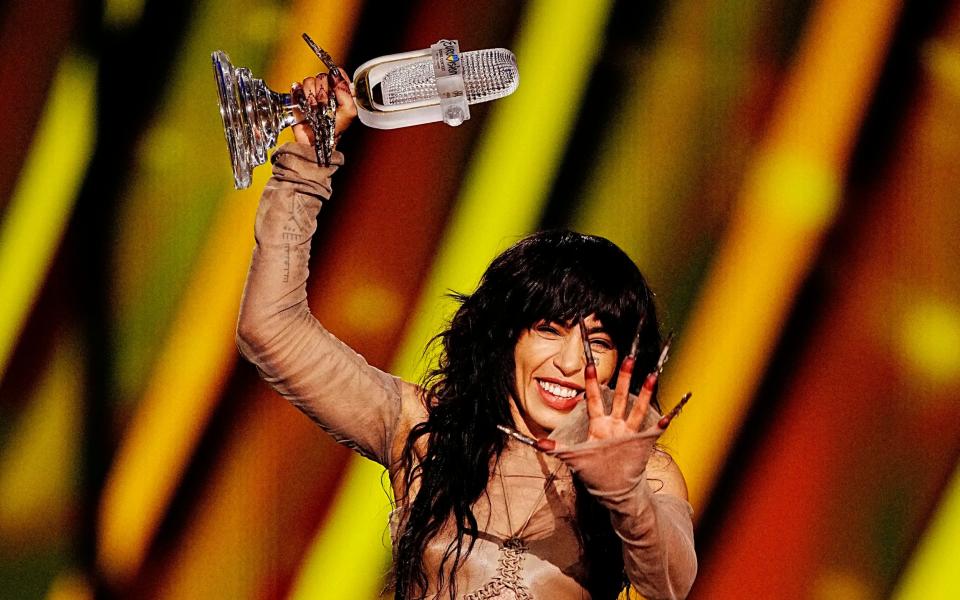
When is the Eurovision final?
The Eurovision final will take place tonight on Saturday, May 11.
The fun kicked off on May 7 with the first of two semi-finals. The second was on May 9, followed by the grand final on May 11.
What time does Eurovision start?
The Eurovision Grand Final starts at 8pm (BST).
How to watch the Eurovision final
The final will be broadcast live on BBC One and Eurovision’s official YouTube channel.
You will also be able to follow along via the Telegraph’s liveblog from 5pm.
Who is in the Eurovision final?
Participants from 25 countries will compete in Saturday’s Grand Final. Dutch entrant Joost Klein has been disqualified as confirmed in a statement from Eurovision.
In running order, they are:
Sweden, Marcus & Martinus – Unforgettable
Ukraine, alyona alyona & Jerry Heil – Teresa & Maria
Germany, ISAAK – Always On The Run
Luxembourg, TALI – Fighter
Netherlands, Joost Klein – EuropapaIsrael, Eden Golan – Hurricane
Lithuania, Silvester Belt – Luktelk
Spain, Nebulossa – ZORRA
Estonia, 5MIINUST x Puuluup – (nendest) narkootikumidest ei tea me (küll) midagi
Ireland, Bambie Thug – Doomsday Blue
Latvia, Dons – Hollow
Greece, Marina Satti – ZARI
United Kingdom, Olly Alexander – Dizzy
Norway, G?te – Ulveham
Italy, Angelina Mango – La Noia
Serbia, TEYA DORA – RAMONDA
Finland, Windows95man – No Rules!
Portugal, iolanda – Grito
Armenia, LADANIVA – Jako
Cyprus, Silia Kapsis – Liar
Switzerland, Nemo – The Code
Slovenia, Raiven – Veronika
Croatia, Baby Lasagna – Rim Tim Tagi Dim
Georgia, Nutsa Buzaladze – Firefighter
France, Slimane – Mon Amour
Austria, Kaleen – We Will Rave
In the first semi-final, 15 countries competed for a place in the final. Ukraine, Serbia, Portugal, Slovenia, Lithuania, Cyprus, Finland, Croatia, Ireland and Luxembourg all made it through; Poland, Iceland, Moldova, Azerbaijan and Australia were eliminated.
In the second semi-final, the remaining 16 fought for a final place: Latvia, Austria, The Netherlands, Norway, Israel, Greece, Estonia, Switzerland, Georgia and Armenia made it through; Albania, Austria, Czechia, Denmark, Belgium, Latvia, the Netherlands, Norway, and San Marino were eliminated.
The so-called “Big Five” countries and host nation Sweden go through to the final automatically, but, for the first time this year, they performed in the semi-finals as well. Germany, Sweden and the UK performed in the first semi, and France, Italy and Spain in the second.
Are Eurovision tickets still on sale and how much are they?
While availability is limited, some tickets are still up for sale on Ticketmaster, with prices starting at 860 Swedish Krona.
This is equivalent to about £63, ranging to 14890,00 Krona for VIP Packages, equivalent to about £1,100.
Has Sweden hosted Eurovision before?
Oh yes – this is the Scandi nation’s seventh time as hosts, which is frankly showing off. They previously hosted the contest from Stockholm in 1975, 2000 and 2016, from Gothenburg in 1985, and from this year’s choice Malm? in 1992 and 2013.
That clutch of seven wins makes Sweden the most successful Eurovision nation ever – tied with Ireland. The UK isn’t far behind, with five wins (although none, alas, in recent years).
Are Swedes excited?
There’s a definite buzz ahead of Eurovision, although also some concern given the current political sensitivities (of which more below). Malm? is organising a full programme of events to keep visitors, estimated at 100,000, entertained, from drag shows and club nights to yet more musical performances.
Fortuitously, Sweden can also celebrate the 50th anniversary of Abba’s Eurovision win (in Liverpool, in 1974) with their 2024 contest. There’s even a rumour that Abba themselves might make a rare appearance to say thank you for the music.
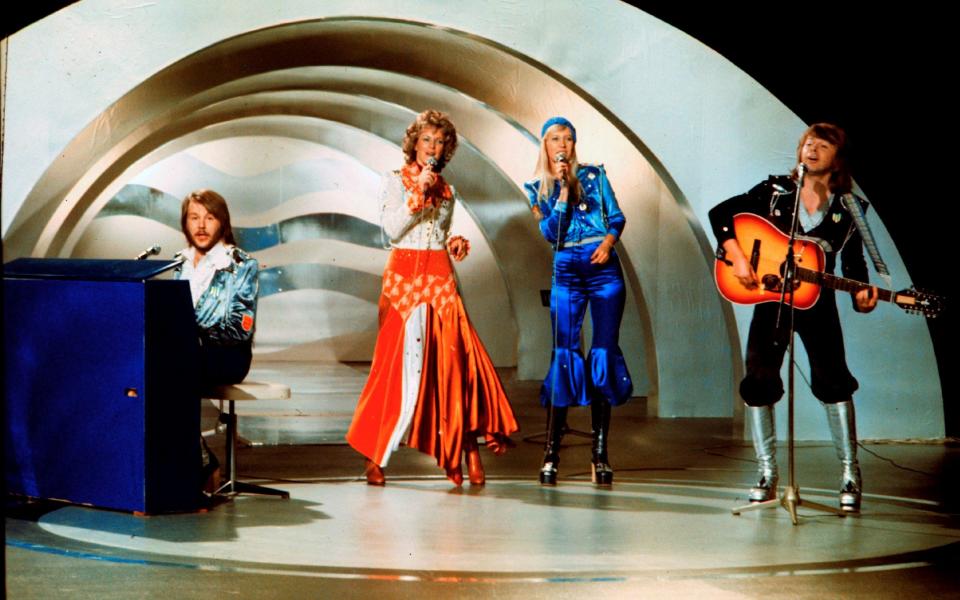
Who is representing the UK at Eurovision 2024?
Years & Years lead singer Olly Alexander is flying the flag for the UK this year.
He’s a legitimate artist and a great performer. Alas, though, says the Telegraph’s music critic Neil McCormick, his song Dizzy is just OK – an electro-dance-pop track somewhat in the vein of last year’s winner Tattoo, but unlikely to be memorable in a competition where you have to go big (and then even bigger). This entry, Neil fears, is too formulaic to stand out.
Is Israel still playing Eurovision?
This is the real talking point of the 2024 contest, despite organisers’ frantic efforts to avoid political controversy at all costs.
You may remember that Russia was banned by Eurovision from participating in its 2022 contest following the country’s invasion of Ukraine. Organisers the Eurovision Broadcasting Union (EBU) said the inclusion of Russia would “bring the competition into disrepute”.
But what about Israel? Should the same rule apply? That’s become a fiercely contested argument, not helped by Israel originally entering a provocative song. Several nations have seen protests and petitions about Israel’s inclusion, and the Icelandic broadcaster RúV seriously debated its participation in 2024 if Israel was involved, before ultimately deciding to stay in.
A pro-Palestinian protestor invaded the stage during the first semi-final of Norway’s Melodi Grand Prix (the country’s Eurovision selection event), and audience members held up signs about the targeting of Palestinian children during Sweden’s Melodifestivalen.
Marching from Glasgow City Chambers to the BBC in a call for Israel's removal from Eurovision, and in protest at its distorted coverage of the Gaza genocide. ???? pic.twitter.com/EKQYsNQr76
— GGEC (@ggectee) April 6, 2024
Protest posters are already appearing in Malm?, and the Malm? Live digital sign was spray-painted with “Free Gaza” in March. The Malm? police have received requests for large-scale protests near the arena, both pro-Palestine and pro-Israel.
Multiple Eurovision entrants, including the UK’s Olly Alexander, signed a joint statement calling for an immediate ceasefire in Gaza and the return of Israeli hostages.
EBU director general Noel Curran has said that Eurovision is taking the same stance as other major bodies like sports federations in keeping an inclusive stance towards Israel, and stated that Eurovision is “a non-political music event and a competition between public service broadcasters who are members of the EBU. It is not a contest between governments.”
Ahead of the semi-final on May 9, thousands of protesters, including Greta Thunberg, marched through Malm?. Israel’s entry, Eden Golan, was booed during dress rehearsals the previous day. Israel’s prime minister, Benjamin Netanyahu, later released a statement in which he praised the singer for “successfully facing a wave of antisemitism while standing and representing the state of Israel with respect”.
Tensions are expected to rise further now that Israel are through to the final. Futher protests were planned for May 10, and an alternate concert has been planned – it will be a “song contest without genocide”, say the organisers.
How did Israel change their entry?
So, Israel first submitted a song called October Rain, written by Avi Ohayon, Keren Peles and Stav Beger, and sung by 20-year-old Eden Golan. “October” recalls the horrific Hamas massacre, and the song’s lyrics were initially pretty pointed too. “I’m still wet from the October rain”; “There’s no air left to breathe”; “They were all good children, each one of them”.
A panicked EBU asked Israel to submit another song – and were met with fury. Culture minister Miki Zohar said on X (formerly Twitter) that the “moving” song expresses “the feelings of the people and the country these days, and is not political.” He added that it would be “scandalous” to disqualify it.
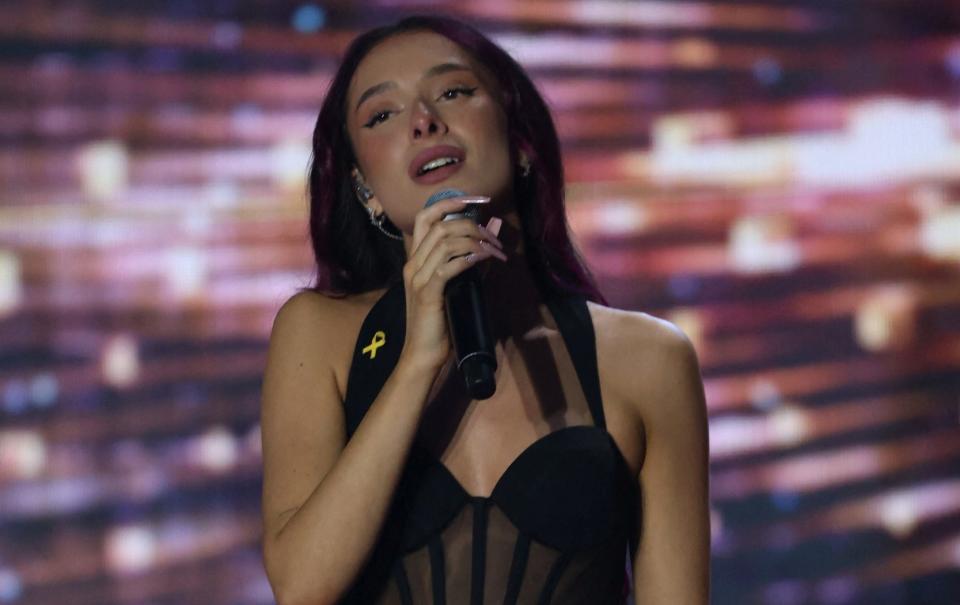
However, a compromise was reached: the song was rewritten and became the less problematic Hurricane, now Israel’s official entry. But critics claim that the music video clearly references the October music festival massacre via its dancers in a field, and that Golan wearing a top with a large hole in it suggests a bullet wound.
It’s not ideal, to put it mildly, for a contest whose slogan is “united by music”. Expect a charged atmosphere any time the Israeli entry is on stage.
But Russia is still banned?
Yes. Following the announcement of their Eurovision ban in 2022, Russia’s state broadcasters suspended their membership of the EBU, preventing them from taking part in future competitions too.
Will there be extra security this year at Malm??
Almost certainly, given the above. Malm?’s police area manager Petra Stenkulla told local radio that Sweden currently has a terror threat level of four out of five, adding: “We can never guarantee safety but we will do our utmost to make people feel safe.”
How has social media reacted to Israel’s involvement?
The EBU has recently put out a statement condemning abuse directed at participating artists over Israel’s involvement in the contest. It acknowledges “the depth of feeling” that comes from a Eurovision “set against the backdrop of a terrible war”, and supports freedom of speech, but opposes “any form of online abuse, hate speech, or harassment directed at our artists or any individuals associated with the contest”.
The statement finishes with a plea for constructive dialogue and support for the artists appearing “on what is a music and entertainment show”, hoping to “share their music with the world.”
Which acts should we look out for in 2024?
Politics aside (whew), Eurovision is best known for its reliably madcap performances. Think banana-loving wolves, filthy milkmaids, and that guy in the giant hamster wheel. Or last year’s joyful eyesore of an entry from Finland. There’s no such thing as too weird.
The 2024 Irish entry, non-binary artist Bambie Thug’s “electro-metal breakdown” Doomsday Blue, certainly has a lot going on. The lyrics contain spells – including killing curse Avada Kedavra, which you might recognise from Harry Potter – and the music video morphs between an angry witch and a dream world featuring the colours of the transgender flag. Now that Ireland are through to the final, we’ll have one more chance to revel in its madness.
Spain’s entry, who are also through, has already caused a row. Its foxy song title Zorra means “vixen”, but is more usually misogynistic slang for “bitch” or “slut”. Husband-and-wife singers Nebulossa say they’re reclaiming it, and Spanish prime minister Pedro Sánchez waded in to defend the track from feminist criticism. The performance features male backing dancers in corsets and thongs, so perhaps it’s equal-opportunities objectification.
Meanwhile, Croatia’s excellently named Baby Lasagna gives us a shouty number about economic emigration, and this year’s stress migraine comes courtesy of Estonia’s hip-hop-folk-mash-up We (sure) know nothing about (these) drugs.
But can anyone top No Rules! by Finland’s Teemu Keisteri aka Windows95man for sheer twaddle? While sporting that (pixelated, per Eurovision rules) Microsoft Windows logo in his performance, he hatched from a denim egg and haphazardly sprayed fire from his jean shorts. Finland’s jury vote placed him dead last, but the public vote put him through. The final will, sadly, be the last opportunity to “enjoy” this display.
How does the voting work exactly?
It’s complicated. Previously, voting comprised a mixture of tallies from the juries of individual countries with an element of public voting. However, there was a big shake-up to the voting system last year after irregular voting patterns were discovered among the juries of six countries during a 2022 semi-final. Essentially Azerbaijan, Georgia, Montenegro, Poland, Romania and San Marino were all suspected of voting for each other.
So last year, for the first time, juries from individual countries were banned from deciding which nations progress from the semis to the Grand Final. Instead, it’s now determined solely by a public vote, and viewers from countries not taking part (so-called Rest of World countries) are able to vote for their favourite songs (paying €0.99 per vote for the privilege).
However, the six countries with a bye to the final are only allowed to vote in one semi each. It’s randomly allotted, and in 2024 British viewers can vote in the first semi-final only.
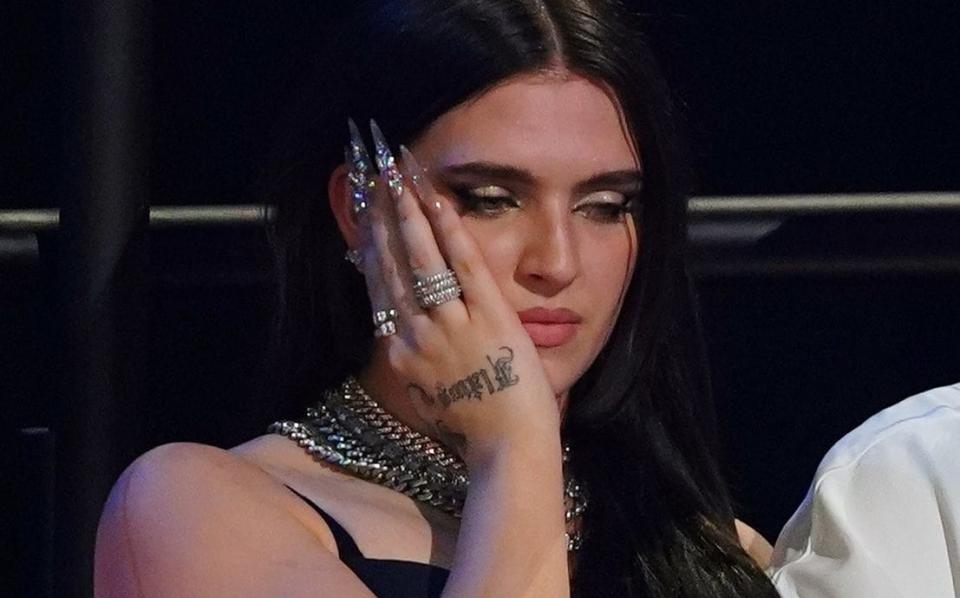
But that’s just the semis. The rankings in the all-important Grand Final are decided by a combination of the points from countries’ individual juries (“douze points from Sarajevo” etc.) and votes from viewers. Each person can vote up to 20 times but cannot select their own country’s entry.
Until recently, votes in the final have been weighted 50-50 between juries and the public vote. But as of last year, votes from the Rest of World countries are combined to have the equivalent weight of one participating country. That alters the 50-50 ratio to give the general public a 50.6 per cent say in the winner, versus a 49.4 per cent say for the juries.
Knotty, isn’t it? And you thought it was just a cheesy singing competition.
Will countries still just vote for their neighbours?
Geopolitics does still inevitably stray into the contest in the form of block voting. Watch out for the Slavic vote, the Nordic vote and the Francophone vote. Not forgetting Greece and Cyprus, which always award each other the maximum 12 points. Expect ironic cheers when they invariably do so.
Might Ukraine win Eurovision again?
Their 2024 entry isn’t exactly a dead cert. Alyona Alyona and Jerry Heil’s warbly dance track is apparently inspired by Mother Teresa and the Virgin Mary, and features a pretty cringe solemn rap section. But voters may still want to show some love for Ukraine via Eurovision.
Do performers sing live?
Yes, all lead vocals must be live. This includes any over-dubs by the singer that follow the song’s melody. Performers can choose between pre-recorded backing vocals, live backing singers (either on or off stage) or a combination of live and recorded backing vocals. Songs must be original compositions and no longer than three minutes long. No more than six performers are allowed on stage during any one song.
Pre-recorded backing tracks were first allowed in 1973 so long as all the instruments that were pre-recorded were also seen being “performed” – or mimed – on stage. This rule was made redundant by the dawn of electronic music and scrapped in 1997, the year after Gina G’s band had to cart massive computers onto the stage to perform Ooh Aah… Just A Little Bit because those were the instruments on which the song was partially created.
How important is Eurovision to Europe?
It’s an exercise in soft kitsch power, really. Although 160 million viewers around the world can’t be bad for Europe’s various tourist boards.
The host cities benefit too. Last year, around 100,000 extra people visited Liverpool, bringing in a net profit of £54 million to the local economy.
I thought this was Eurovision. How come Australia and Azerbaijan can enter?
Both countries were eliminated in the first semi-final, but the fact that they enter at all still baffles many. Australians have always loved Eurovision. Despite being 7,000-odd miles away from Europe, the country was invited to perform during the interval of the competition’s semi-finals in 2014. The following year Australia was given a one-off chance to compete in the actual finals due to it being Eurovision’s 50th anniversary. Singer Guy Sebastian came fifth and so impressed the Eurovision hierarchy that Australia was allowed to return annually as a full-time competitor. If Australia wins the contest then it doesn’t mean that participants would jet off to Sydney for the following year’s bash. A special rule means that a victorious Australia would have to pick a European co-host to lay on the competition on its behalf.
And Azerbaijan? Well, the “Euro” in Eurovision isn’t really geographical. Rather it stems from the fact that the contest is organised by the EBU, which comprises broadcasters from counties in Europe and beyond. According to the EBU’s website, it has 112 member organisations from 56 countries with an additional 30 associate members in Asia, Africa and elsewhere. Full-time members also include broadcasters from Jordan and Tunisia.
Why, then, isn’t the USA in Eurovision?
Americans have historically viewed Eurovision as a quaint and eccentric curio. Things started to change in 2016 when some 50 million US households were able to watch it for the first time thanks to a deal between the EBU and Viacom.
Then in 2020 the contest got the Will Ferrell treatment in the comedy film Eurovision Song Contest: The Story of Fire Saga in which it was, largely, portrayed as a quaint and eccentric curio (although the film did receive an Oscar nomination for best original song).
In 2022, broadcaster NBC launched its own US-only version. The American Song Contest pitted 56 performers against each other: one from each of the US’s 50 states, one from the capital Washington DC, plus one from each of Puerto Rico, American Samoa, Guam, US Virgin Islands and Northern Mariana Islands. Oklahoma won. The contest was not repeated in 2023. Still, at least Americans can vote in the actual Eurovision now – through the official app or by visiting here.
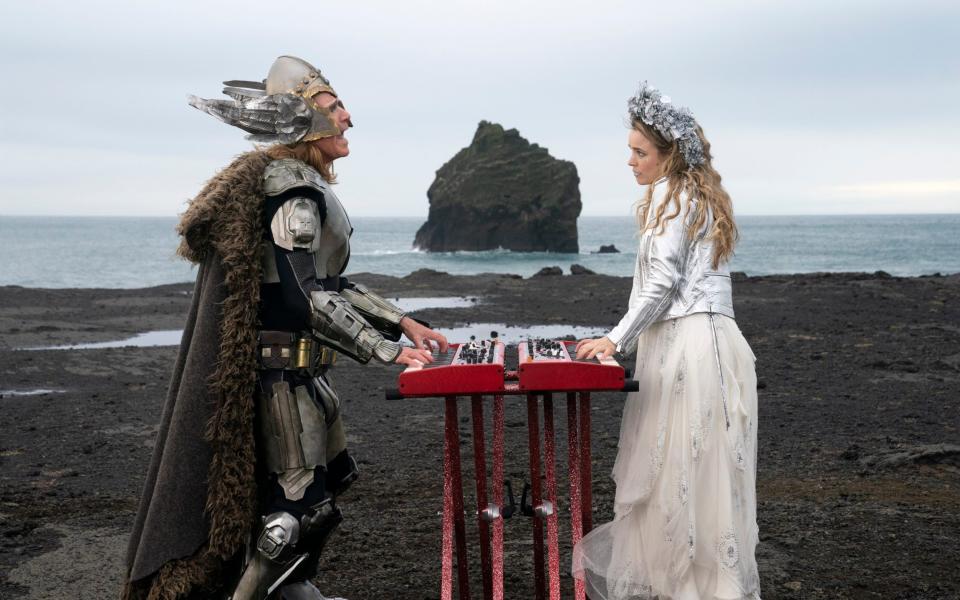
Is Eurovision good for your career?
It can be. Abba (1974), Celine Dion (1988) and Olivia Newton-John (1974) went on to become global superstars after Eurovision. The contest has also helped sustain the careers of artists who’ve already made it, such as Michael Ball (1992), Cliff Richard (1968) and Lulu (1969). And it has given boosts to performers in the later stages of their careers (Katrina and the Waves, Engelbert Humperdinck and Bonnie Tyler).
M?neskin, the Italian winners from 2021, are now huge mainstream stars: they played London’s O2 and Glastonbury last year. Sam Ryder, the UK’s 2022 runner-up, has done pretty well for himself too. But for every artist who makes it, dozens don’t. Four words: Scooch, Jemini, James Newman. Oh, and now we can poor Mae Muller to that tally.
Marianka Swain is a journalist and scriptwriter having written for several newspapers and magazines. Marianka was previously the UK editor-in-chief for BroadwayWorld.
